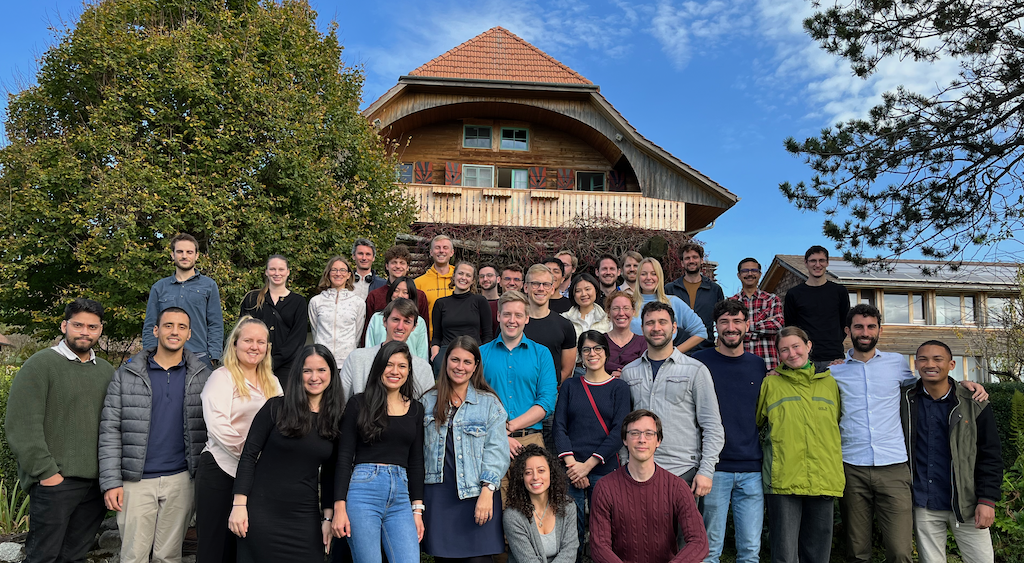
Autumn School 2024: Premise, Wurst and Brightway for Beginner and Intermediate Users
November 11-15, Hotel Möschberg, Grosshöchstetten, Switzerland
Jointly organised by Départ de Sentier and Paul Scherrer Institute
Course overview
Open-source tools help us realise the true potential of life cycle assessment (LCA). We have tools for cloud calculations, uncertainty and sensitivity assessment, parametric modelling, external model interfaces, spatial and temporal assessment, scenarios-based and prospective assessment, hybridisation of multiple databases, and database modelling perspectives.
In this autumn school, we will build on these open-source foundations, focusing on Brightway, Wurst and Premise (and maybe Temporalis if there is interest), to make our inventory models better fit research questions with a temporal dimension. The instructors will be Romain Sacchi, the developer of Premise, Karin Treyer, who spearheads Brightway’s online learning materials that focus on novice users, and Chris Mutel, lead developer of Brightway. They will be assisted by Alvaro Hahn-Menacho, who has expertise in integrating Mass Flow Analysis (using ODYM) in prospective LCA.
The course will cover Brightway’s basics and best practices for model development. Teaching includes both the use of Jupyter notebooks for Brightway and the use of Activity Browser. We will cover essential aspects of LCA, such as sensitivity analysis, multiple types of uncertainty, parametrisation, etc. Best practices in software architecture will be taught, including documentation standards and tools, testing, data and source version control, linting, and quick tool builders like Panel and Dash. We will then apply these concepts while diving deep into Premise and writing parameterised models to generate custom scenario data.
The week starts with three interactive teaching sessions using Jupyter Notebooks, Git, and other tools needed to develop, test, and document LCA models properly. These notebooks include exercises, and we will discuss the solutions in class. From Thursday to Friday, you will work in groups of around five people and apply these ideas in small group projects. Short teaching inputs will support the group work. Groups will present their results on Friday afternoon.
This autumn school is primarily aimed at students who wish to become familiar with the Brightway ecosystem, targeting specifically beginner and intermediate users. Students who complete the school will receive a certificate for 2 ETCS credit points. Enrollment is limited to 30 people.
Location
The summer school will be held in the Möschberg seminar hotel, in Grosshöchstetten, Switzerland. This hotel is outside the village, with views south towards the Bernese Alps. Möschberg emphasises local and organic food for its guests.
Python preparation
A basic understanding of Python is necessary for the school. Brightway offers training and documentation online. Students should review those materials and some Python training before school starts.
Starting and ending times
The school starts at 10:00 on Monday, and it's most convenient to arrive on the 9:04 train into Grosshöchstetten. The school ends at 16:00 on Friday, though we will offer an Apéro with snacks and drinks for students on Friday evening. You can contact the hotel if you want to stay Friday night, or arrive before Monday morning.
Language
The summer school will be in English.
Tentative program
| Day | Activities |
|---|---|
| Pre-school requirements | Instructions will be sent a month ahead:
|
| Day 1 |
|
| Day 2 |
|
| Day 3 |
|
| Day 4 |
|
| Day 5 |
|
Course fees
| Room | Shared Double | Single |
|---|---|---|
| CHF | 1000 | 1100 |
| EUR (approximate) | ~1050 | ~1150 |
Invoices can be issued in EUR, using the current conversion rate. Invoices can also be paid by credit card for an additional ~3% fee.
Course fees includes room, materials, and all meals from Monday to Friday lunch, but do not include transportation. Single room availability is limited. Full refunds are available up to October 15th, after which only 50% of the course fee will be refunded.
The school is jointly organised by Départ de Sentier and the Paul Scherrer Institute. DdS is a Swiss nonprofit association which supports open sustainability assessment and public engagement. The Paul Scherrer Institute is a Swiss research institute where Brightway and Premise have been substantially developed.